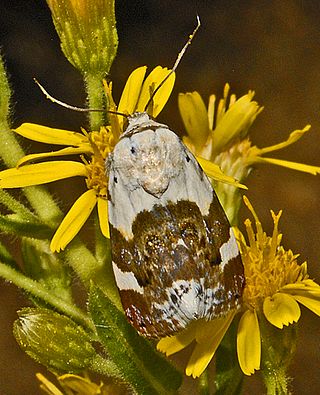
Acontias is a genus of limbless skinks, the lance skinks, in the African subfamily Acontinae. Most are small animals, but the largest member of the genus is Acontias plumbeus at approximately 40 cm (16 in) snout-vent length. All members of this genus are live-bearing sandswimmers, with fused eyelids. A recent review moved species that were formerly placed in the genera Typhlosaurus, Acontophiops, and Microacontias into this genus, as together these form a single branch in the tree of life. This new concept of Acontias is a sister lineage to Typhlosaurus, and these two genera are the only genera within the subfamily Acontinae.

The woodbush legless skink is a species of legless skink. It is found in the Wolkberg mountains of Limpopo Province, South Africa. Females of the species give birth to live young. This lizard species was formerly placed in a monotypic genus as Acontophiops lineatus. Morphologically the genus shows similarities to Acontias cregoi and a recent review placed both of these within the genus Acontias, which, as Acontias lineatus was already occupied, required a new name for this species.

Acontia is a genus of moths of the family Noctuidae. The genus was named by Ferdinand Ochsenheimer in 1816. Eusceptis, Pseudalypia and Spragueia are sometimes included in the present genus, but here they are tentatively treated as different pending further research. Many species of Tarache were also once placed here.

Acontia lucida, the pale shoulder, is a moth of the family Noctuidae. The species was first described by Johann Siegfried Hufnagel in 1766.

Acontia transfigurata is a moth of the family Noctuidae. It is found in most countries of subtropical Africa south of the Sahara.
Vivian Frederick Maynard FitzSimons, born in Pietermaritzburg, was a notable herpetologist in South Africa. Also, he contributed to the collection of spermatophyte samples for the National Herbarium which has become part of the South African National Biodiversity Institute at the Pretoria National Botanical Garden. In 1937, together with Anna Amelia Obermeyer, he collected some of the earliest plant specimens from the Eastern Highlands of Rhodesia.





